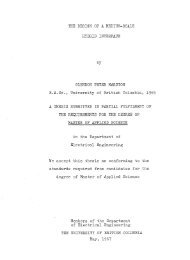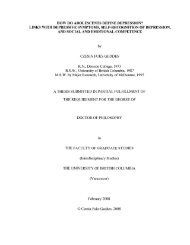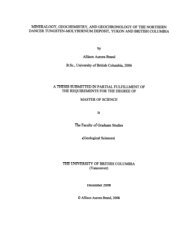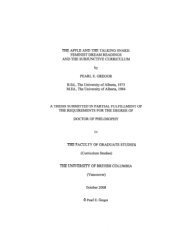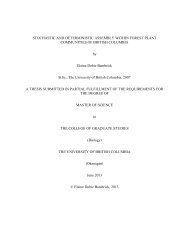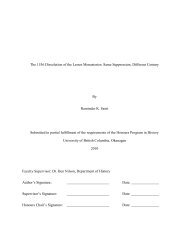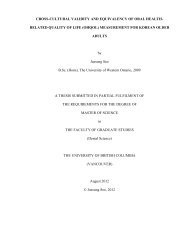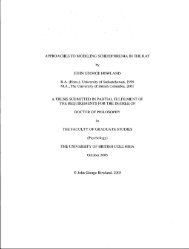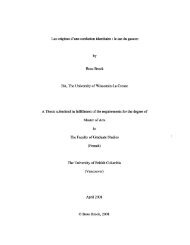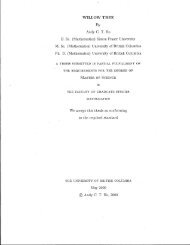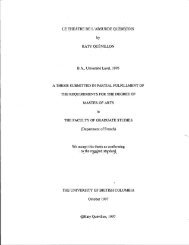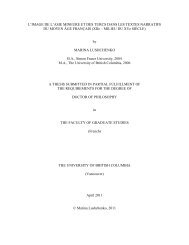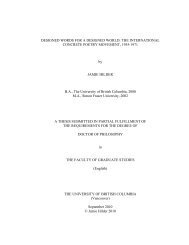A STUDY OF THE THEORY OF APPRAISAL FOR SELECTION By ...
A STUDY OF THE THEORY OF APPRAISAL FOR SELECTION By ...
A STUDY OF THE THEORY OF APPRAISAL FOR SELECTION By ...
You also want an ePaper? Increase the reach of your titles
YUMPU automatically turns print PDFs into web optimized ePapers that Google loves.
oader concept of information data systems. The organization of<br />
each data system into microdata related by software capabilities<br />
for precise indexing allows for a high precision of retrieval<br />
that is simply unattainable in paper records. At the same time,<br />
electronic records are highly unstable, and suffer from software<br />
dependency and rapid obsolescence. The traditional notion of<br />
original order as corresponding to physical order is meaningless<br />
in the context of the random storage of electronic data, and<br />
therefore must be reexamined. Original order in paper records is<br />
a static phenomenon that must be preserved to provide context and<br />
meaning. In electronic records, the concept of original order as<br />
an arbiter of meaning is found in the system's dynamic relational<br />
context. This functionality is inherent in the design system of<br />
the software and must be preserved by the archivist to maintain<br />
meaning and access.<br />
Electronic records began their history in the 1950s with<br />
non-record status, and were gradually accorded partial status for<br />
containing unique information. In 1981, John McDonald and Sue<br />
Gavrel from the Public Archives of Canada challenged Charles<br />
Dollar's proposal to limit the evaluation of electronic records<br />
to technical and informational value. McDonald and Gavrel had no<br />
quibble with Dollar's insistence on technical analysis as central<br />
to the appraisal of electronic records, but, for the first time,<br />
they insisted that electronic records also had evidential and<br />
110




